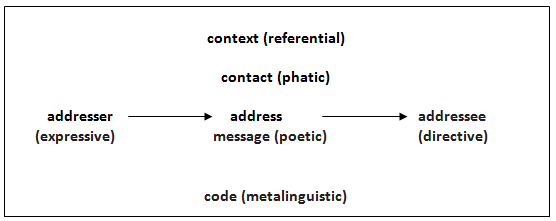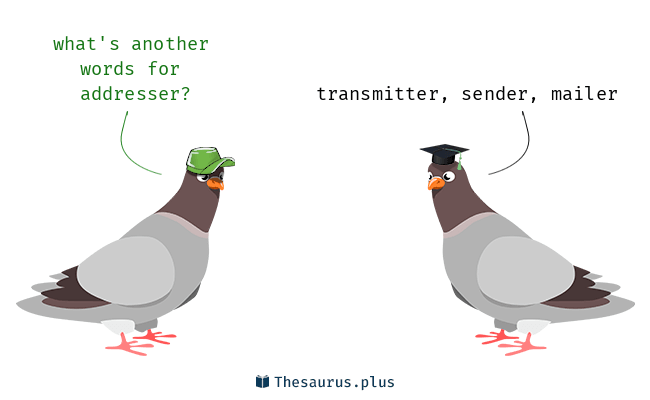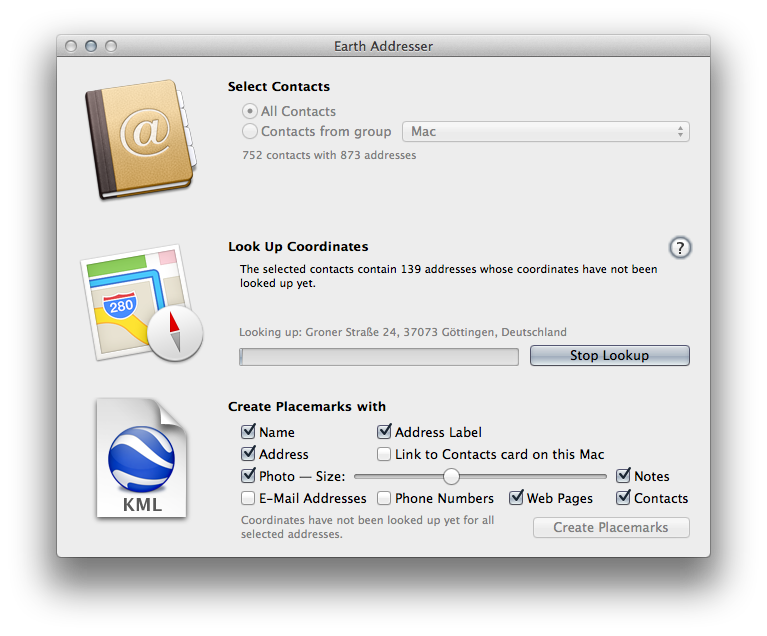
noun
- a speech or written statement, usually formal, directed to a particular group of persons: the president’s address on the state of the economy.
- a direction as to the intended recipient, written on or attached to a piece of mail.
- the place or the name of the place where a person, organization, or the like is located or may be reached: What is your address when you’re in Des Moines?
- manner of speaking to persons; personal bearing in conversation.
- skillful and expeditious management; ready skill; dispatch: to handle a matter with address.
- Computers.
- a label, as an integer, symbol, or other set of characters, designating a location, register, etc., where information is stored in computer memory.
- a set of characters designating an email account: Her email address ends in “.net,” not “.com.”
- a set of characters designating the location of a website or a particular computer or other device on a network: He visits that website so often that its complete address comes up whenever he types its first letter into the address bar.See also URL
- Government. a request to the executive by the legislature to remove a judge for unfitness.
- Usually addresses. attentions paid by a suitor or lover; courtship.
- (usually initial capital letter) the reply to the king’s speech in the English Parliament.
- Obsolete. preparation.
verb (used with object), ad·dressed, ad·dress·ing.
- to direct a speech or written statement to: to address an assembly.
- to use a specified form or title in speaking or writing to: Address the president as “Mr. President.”
- to direct to the attention: He addressed his remarks to the lawyers in the audience.
- to apply in speech (used reflexively, usually followed by to): He addressed himself to the leader.
- to deal with or discuss: to address the issues.
- to put the directions for delivery on: to address a letter.
- Commerce. to consign or entrust to the care of another, as agent or factor.
- to direct the energy or efforts of (usually followed by to): He addressed himself to the task.
- to direct (data) to a specified location in an electronic computer.
- Golf. to take a stance and place the head of the club behind (the ball) preparatory to hitting it.
- Obsolete. to woo; court.
- Archaic. to give direction to; aim.
- Obsolete. to prepare.
verb (used without object), ad·dressed or ad·drest, ad·dress·ing. Obsolete.
- to make an appeal.
- to make preparations.
noun
- the conventional form by which the location of a building is described
- the written form of this, as on a letter or parcel, preceded by the name of the person or organization for whom it is intended
- the place at which someone lives
- a speech or written communication, esp one of a formal nature
- skilfulness or tact
- archaic manner or style of speaking or conversation
- computing a number giving the location of a piece of stored informationSee also direct access
- British government a statement of the opinions or wishes of either or both Houses of Parliament that is sent to the sovereign
- the alignment or position of a part, component, etc, that permits correct assembly or fitting
- (usually plural) expressions of affection made by a man in courting a woman
verb -dresses, -dressing or -dressed or obsolete, or poetic -drest (tr)
- to mark (a letter, parcel, etc) with an address
- to speak to, refer to in speaking, or deliver a speech to
- (used reflexively; foll by to)
- to speak or write tohe addressed himself to the chairman
- to apply oneself tohe addressed himself to the task
- to direct (a message, warning, etc) to the attention of
- to consign or entrust (a ship or a ship’s cargo) to a factor, merchant, etc
- to adopt a position facing (the ball in golf, a partner in a dance, the target in archery, etc)
- to treat of; deal withchapter 10 addresses the problem of transitivity
- an archaic word for woo
1530s, “dutiful or courteous approach,” from address (v.) and from French adresse. Sense of “formal speech” is from 1751. Sense of “superscription of a letter” is from 1712 and led to the meaning “place of residence” (1888).
early 14c., “to guide or direct,” from Old French adrecier “go straight toward; straighten, set right; point, direct” (13c.), from Vulgar Latin *addirectiare “make straight,” from Latin ad “to” (see ad-) + *directiare, from Latin directus “straight, direct” (see direct (v.)). Late 14c. as “to set in order, repair, correct.” Meaning “to write as a destination on a written message” is from mid-15c. Meaning “to direct spoken words (to someone)” is from late 15c. Related: Addressed; addressing.
 Liberal Dictionary English Dictionary
Liberal Dictionary English Dictionary


